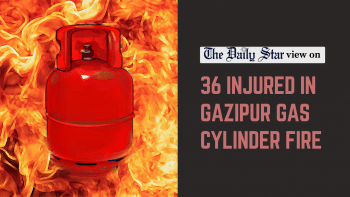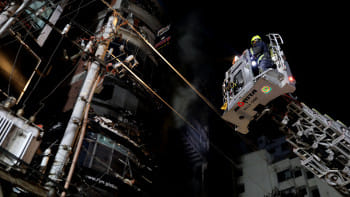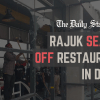Someone must answer for the rising fires

Ever since the Bailey Road tragedy struck, we've been bombarded with one sobering revelation after another with reports on more fires, government drives, arrests, closures, and damning surveys coming in quick succession. It is a testimony to the heightened public awareness that comes after any catastrophic tragedy, but also to the progressively deteriorating fire situation in Bangladesh. As per latest reports, citing data from the Fire Service and Civil Defence, things have been particularly bad over the last four years. In 2023, the number of fire incidents was 27,624. It was 24,102 in 2022, 21,601 in 2021, and 21,073 in 2020. In fact, over the past seven years, a whopping 1,73,709 incidents occurred across the country, killing 2,884 people.
These findings are consistent with a growing consensus that arbitrary government drives—triggered by the outcry over lack of safety measures precipitating a tragedy—cannot prevent fire incidents. These special operations are conducted in a half-hearted manner without any central plan or coordination among the participating agencies. And they fizzle out as soon as the initial ripples subside. Beyond that, according to an expert, the agencies only issue notices to the violators of building/fire safety regulations without any follow-up legal action, allowing violations to recur. While lack of institutional accountability is obviously a factor for the agencies not doing their job properly or throughout the year, we must acknowledge that they, too, are hamstrung by certain systemic issues.
At the fire service, for example, officers often do not sue violators because they "do not want to attend court hearings throughout the lengthy trial proceedings," says an official. Besides, many building owners are politically connected and powerful, and can harass inspectors. The fire service also doesn't have its own executive magistrates to run mobile courts. Unchecked political influence and corruption are also a deterring factor for the other agencies, including Rajuk and city corporations. That said, we cannot allow these issues to continue to come in the way of strict enforcement of safety regulations. The authorities must remove all roadblocks for relevant agencies and ensure that no one gets away with unplanned construction and poor safety practices.


 For all latest news, follow The Daily Star's Google News channel.
For all latest news, follow The Daily Star's Google News channel. 









Comments